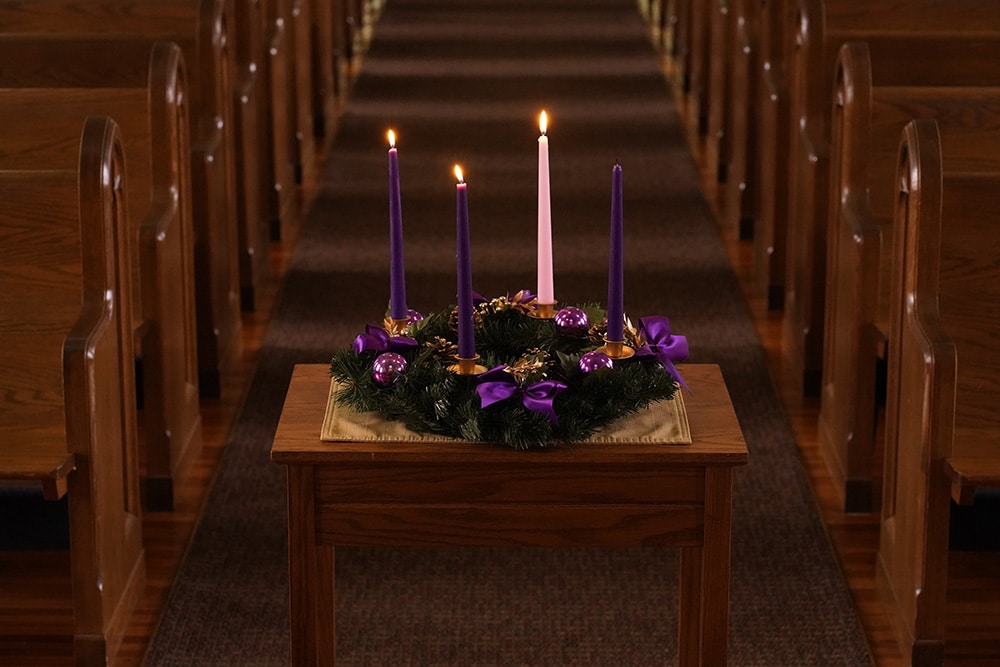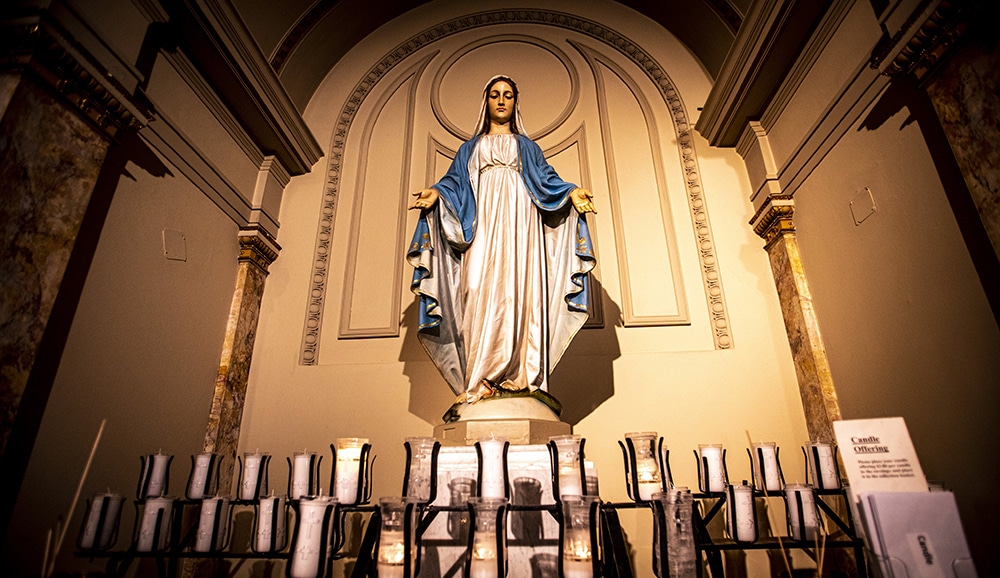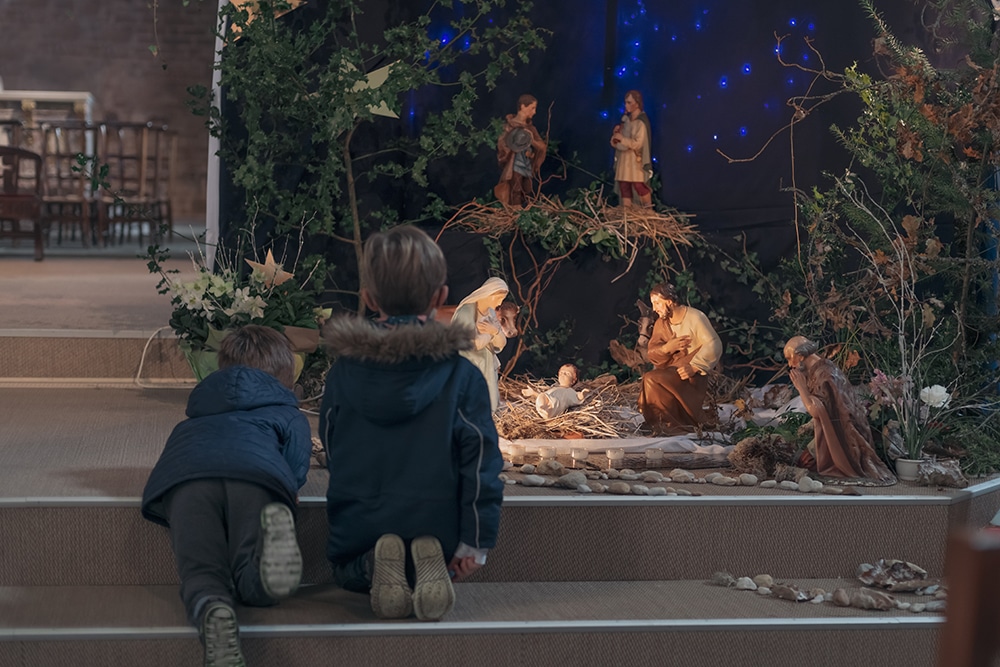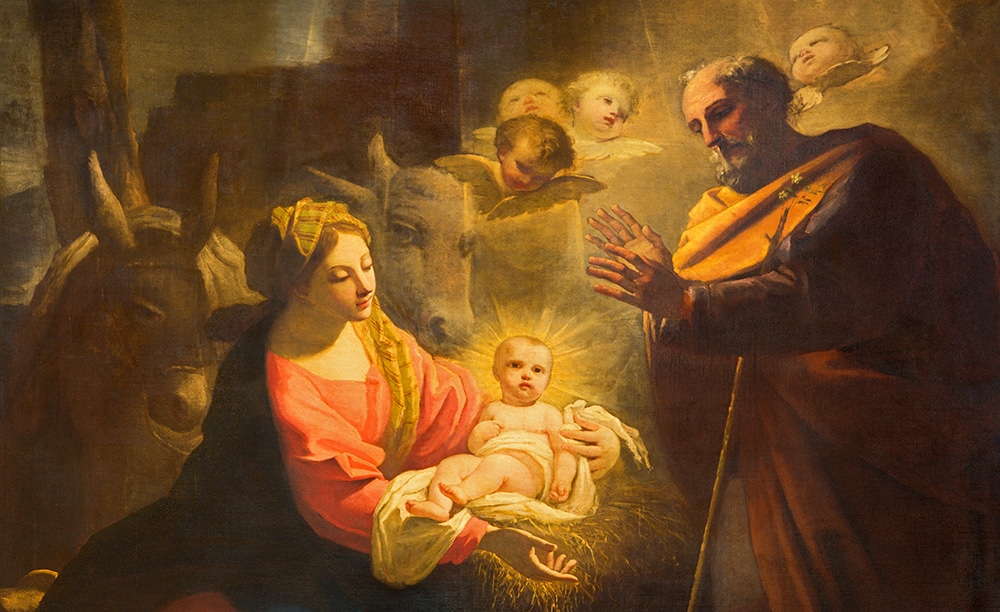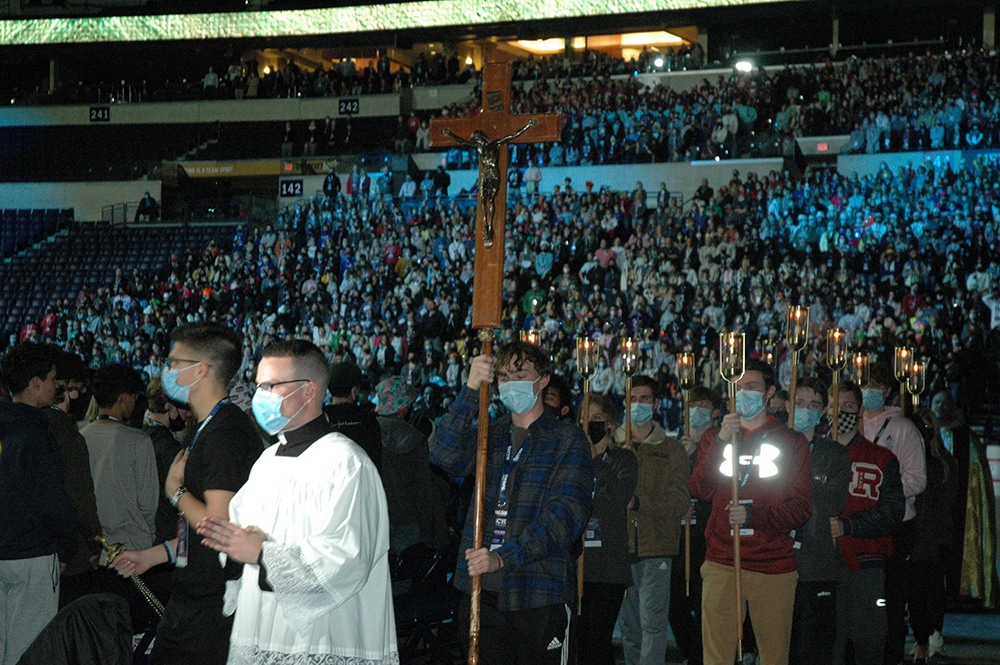 The third Sunday of Advent is Gaudete Sunday. In Latin, gaudete means “rejoice.” This Sunday is filled with a particular joy: Christmas draws near!
The third Sunday of Advent is Gaudete Sunday. In Latin, gaudete means “rejoice.” This Sunday is filled with a particular joy: Christmas draws near!
Accordingly, the readings for this Sunday exhort us to be joyful and rejoice: shout for joy, be glad and exult with all your heart, cry out with joy and gladness, give thanks, sing praise, shout with exultation, rejoice in the Lord always … again, rejoice! The pure exuberance expressed in Scripture this Sunday is the joy of all the ages bursting and singing forth, knowing the Good News that is about to be bestowed upon us all. It can hardly be contained. In fact, it can’t be.
Yet, this joy isn’t a sudden outburst. It has been building within us, the closer the Good News has drawn. We have been preparing our homes and preparing ourselves. We are waiting to hear the angels, the shepherds and the mountains become a choir of exultation on Christmas night: Christ is born! Christmas will be the feast of joy, a singularly happy moment of embrace.
| December 12 – Third Sunday of Advent |
|---|
|
Zep 3:14-18 |
There is an ancient antiphon, “O Wondrous Embrace,” that the Church has sung at Christmas since the third century. The antiphon wonders at the great exchange celebrated at Christmas: God has become man — a tiny baby! — so that he might draw near and embrace us. An exchange of love!
Perhaps you are familiar with the icon of Our Lady of Vladimir? In it, the baby Jesus reaches his tiny hands around his mother’s neck and looks into her eyes. And so it is Mary who looks at us, who beholds such tenderness between Mother and Son. Mary extends God’s embrace to us in a look of absolute consoledness and deep joy. She looks at us with love.
Embraced by God’s love so tenderly, so intimately, we are compelled to love in kind. It is a true exchange. We are given God’s love. And with it, as St. Thérèse of Lisieux once told us, we can love God and one another. This is just what John the Baptist exhorts us to do in the Gospel reading today. All of our joy in preparing our souls for Christ, and of finding ourselves in God’s embrace, erupts and overflows in acts of thanksgiving, carried out with deep joy. Be generous with God’s love, John says. It was a gift; give accordingly.
And so perhaps we are wondering (not being tax collectors or soldiers), “What is it that we should do?” The Catechism of the Catholic Church gives us a simple, consoling way to offer thanksgiving: Mary’s look of love. It is a prayer, and, as such, it is the opening of the Christmas embrace to one another. The Catechism quotes St. Thérèse, who said, “For me, prayer is a surge of the heart; it is a simple look turned toward heaven, it is a cry of recognition and of love, embracing both trial and joy.” What would happen if we all took up this simple act of prayerful thanksgiving and looked at one another, friend and stranger alike, with Christmas joy? “O Wondrous Embrace!”
There is still more reason to rejoice in our readings today! Filled as it is, your heart might ask, “Is that possible?” “Yes!” says Zephaniah, “It is.” Recall Zephaniah’s words from today: “The Lord, your God, is in your midst, a mighty savior; he will rejoice over you with gladness, and renew you in his love” (Zep, 3:17).
To the reality of God’s embrace, Zephaniah adds that God rejoices over us! With gladness! Thus, as the hymn declares, in God’s Christmas embrace the soul feels its worth, renewed by God’s love. “Fall on your knees, O [listen, now, to] hear the angels’ voices. …”
Catherine Cavadini, Ph.D. is the assistant chair of the Department of Theology and director of the M.A. in theology at the University of Notre Dame.

